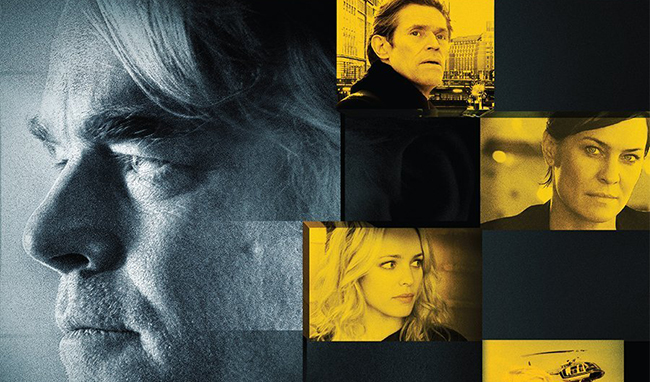
A Most Wanted Man Review
Sadly Philip Seymour Hoffman passed away last year leaving a very big gap in the serious indie drama with A Most Wanted Man being one of his last completed films and is to be released by Entertainment One. This role, more than adequately supported by Rachel McAdams and Willem Dafoe should be a walk in the park that actor. Perfectly cast as the overweight, drinking, smoking and not afraid to lash out secret agent, Hoffman’s character is not one that would have stretched him too much and is one of the few aspects of the film that moves the focus away from John Le Carré’s source novel of the same in which the character only played support to McAdams lawyer character helping the defenceless immigrant and even Dafoe’s more than ever slightly shady banker.
On viewing the film it hadn’t occurred to me that this was an adaptation of a Le Carré novel but its style soon gave that away with its moody urban German locations and an underworld of quiet spying and secrecy. However, on discovering that this was indeed an adaptation of a Le Carré novel then the thought crossed my mind that maybe this was an updating of one of his Cold War spy stories, updated to the zeitgeist of Islamic terrorism, state paranoia and illegal immigration. But no, other than the aforementioned it is a straight adaptation of a novel the ageing writer and libertarian a Le Carré wrote in 2008, a few years after the game changer that was 9/11.
A Most Wanted Man opens with some introductory text explaining that Mohammad Atta, the leader of the 9/11 terror attacks was part of a cell in Hamburg and that they had been ignored by the German authorities before showing a Chechen, Issa Karpov (Grigory Dobrygin) arriving illegally in the German port city of Hamburg. His arrival is known to the authorities and there are suspicions that he is a known terrorist who has made his way to Germany via Turkey. A secret intelligence agency headed by Gunther Bachmann (Hoffman) are keeping tabs on the Chechen and they are aware that he is planning to meet a banker, Thomas Brue (Dafoe) in which a good deal of money is to be exchanged and given to a known terror financier. Bachmann is not convinced that the Chechen is either a willing terrorist or is aware that the so-called head of an Islamic charity group is in fact financing terror on the side. Karpov is living under the radar and is taken in by a Turkish immigrant family where he is soon helped by a human rights lawyer who helps immigrants called Annabel Richter (McAdams). While the German authorities wish to be robust and arrest Karpov on trumped up terror charges, Bachmann begs that he is given more time as nothing is going to be achieved taking the Chechen without getting bigger fish. A supposedly friendly representative from the CIA (Robin Wright) is also present. And now comes Bachmann’s challenge. The problem is the human rights lawyer becomes suspicious and hides Karpov in secrecy while Bachmann attempts to gain the help of the banker with more pressure being piled on by the authorities. It soon becomes apparent that Karpov is really an innocent caught up in the web and Bachmann has to let events play out.
In many ways both the adaptation and the story is text book Le Carré with its moody, slow methodical style and drama. Hamburg looks similar to the grim Check Point Charlie East/West Berlin of his earlier Cold War stories. Yet there is something lacking. The sense of impending drama was perhaps better reflected in the updated Tinker, Tailor, Soldier, Spy (2010) which still managed to retain much of the atmosphere of the author’s story but gave it a more layered build of drama which A Most Wanted Man fails to do until the closing moments (without giving anything away). Having said this it does fall into the canon of many post 9/11 or post Iraq/War on Terror films that have come from Hollywood, wearing a variety of political colours. Yet this film, which comes plainly clear in one of the extras, an interview and talking head by Le Carré that this is the work of a libertarian concerned at the police state that so-called Fortress Europe has become. Whether you agree with this or not depends, of course, on cut of the viewer’s own political jib. Directed by Anton Corbijn, a director perhaps best known as a music video director for bands such as U2 and Depeche Mode never the less has also made some similarly interesting films such as The American (2010) starring George Clooney about an assassin in Italy on the change. This is though an interesting addition to the cycle of films dealing with the subject of global terror and should give room for discussion. The disc also includes a Making of documentary that is comes across as fairly routine.
Chris Hick

